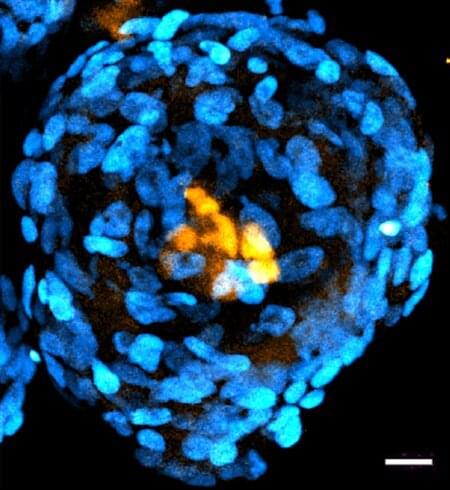Research on human embryos is vital to understanding the earliest stages of human development. Currently, this research is conducted on surplus embryos willingly donated by individuals who have undergone in vitro fertilization. Nevertheless, this research is limited by the availability of embryos and strict international ethical time limits on how long an embryo is allowed to develop in the laboratory (14 days maximum.)
Now, Caltech researchers have created embryo-like structures out of human stem cells. In contrast to natural embryos that are formed by a combination of sperm and egg, these structures are formed by combining so-called pluripotent stem cells, which have the ability to develop into specialized types of cells. Though these embryo-like structures have some key differences from real embryos, the technology to create them will be critical in answering open questions about human development without the need for donated embryos.
The research was conducted in the laboratory of Magdalena Zernicka-Goetz, Bren Professor of Biology and Biological Engineering at Caltech, and is described in a paper appearing in the journal Nature Communications on September 21.
